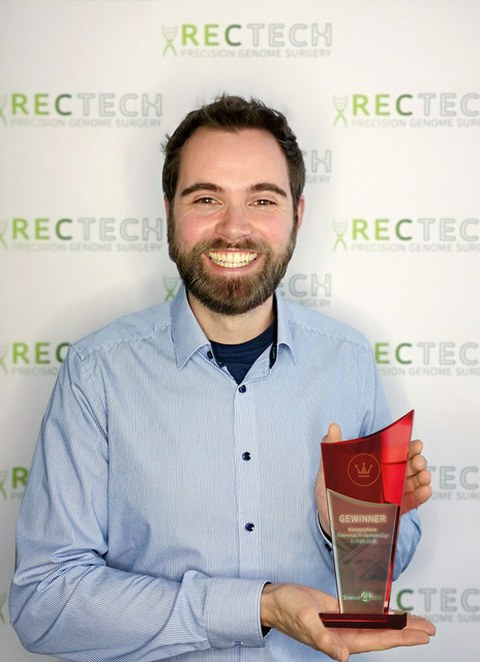Mar 11, 2021
The tailored genome - How enzymes can help to cure hereditary diseases

Felix Lansing, Scientist of the RecTech Team
The start-up project RecTech led by Prof. Frank Buchholz and Dr. Anne-Kristin Heninger has once again succeeded in scoring points in the prestigious Science4Life Venture Cup. This time, RecTech was awarded as one of the ten best teams for its innovative business concept. The participation is highly competitive and offers applicants access to more than 300 industry experts.
The research team of the TU Dresden has developed a promising business concept to establish a flourishing Biotech company in Dresden based on designer recombinase technology. The technology of genome editing applies molecular biological tools to specifically modify the genetic code of organisms. Based on genome editing tools, genetic diseases might be cured in the future by means of "molecular repair". The business idea of the RecTech project is to develop a recombinase platform technology.
Currently, more than 8,000 gene mutations are known to cause genetic diseases that are currently incurable. However, RecTech's designer recombinases enable the development of new curative therapies for such diseases. Sequence-specific recombinases (SSRs) are enzymes that can precisely edit and modify the genome at a specific target sequence. The RecTech team has developed innovative methods to adapt SSRs to any recognition sequence.
In the phase of the Science4Life business plan competition, 81 teams from all over Germany once again participated. This time, the ten best business concepts were awarded within the Venture Cup and the BMBF-GO-Bio-funded start-up RecTech from Dresden was again among them.
